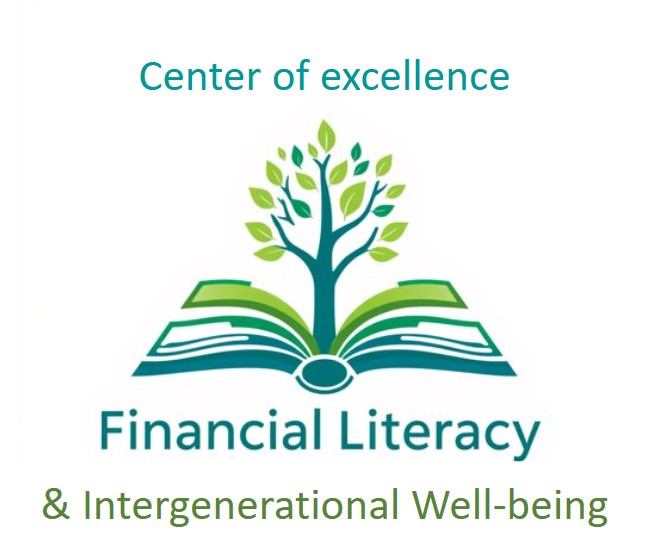The Role of E-Wallets, Service Quality, and Social Entrepreneurship in Enhancing Business Competitiveness
 Abstract Views:
891 times
Abstract Views:
891 times
 PDF Downloads:
630 times
PDF Downloads:
630 times
Abstract
Purpose: This paper investigates the impact of using e-wallets, service quality, and social entrepreneurship on the competitiveness of MSMEs participants.
Method: This study used a sample of 105 respondents who were active members of MSMEs in Sukun Market. These respondents ranged in age from 17 to 72 years old, indicating a broad spectrum of age groups and experiences, which provides a broad understanding of the demographic involved in MSMEs within this area. The method employed in this research included validity and reliability tests to examine the research instrument: a questionnaire, determination coefficient (R-Square), F-Square testing, and hypothesis testing. The testing was conducted using simple regression analysis.
Result: The result of the study indicates that the use of e-wallets, service quality, and social entrepreneurship has a 66 percent influence on the competitiveness of MSMEs participants. Therefore, the variables have a positive and significant effect on the competitiveness of MSMEs participants in Sukun Market, Tanjungrejo Village, Malang City.
Downloads
References
Barthakur, G., & Rajkonwar, A. B. (2021). Seller’s Perception: Preference and Significance of Payment Platforms. Turkish Journal of Computer and Mathematics Education, 12(12), 3666–3674.
Cao, X., Yu, L., Liu, Z., Gong, M., & Adeel, L. (2018). Understanding mobile payment users’ continuance intention: a trust transfer perspective. Internet Research, 28(2), 456–476. https://doi.org/10.1108/IntR-11-2016-0359
Cortes, A. F., & Lee, Y. (2021). Social entrepreneurship in SMEs: a note on three essential questions. New England Journal of Entrepreneurship, 24(2), 62–78. https://doi.org/10.1108/NEJE-03-2021-0014
Dewanty, M. A., & Mustofa, I. (2023). Problematika Pemberlakuan Quick Response Code Indonesia Standard Bagi Kemajuan Ekonomi Digital Pelaku Usaha Umkm. Jurnal Ekonomi & Bisnis, 11(3), 397–405. https://doi.org/10.58406/jeb.v11i3.1351
Ebrashi, R. El. (2013). Social entrepreneurship theory and sustainable social impact. Social Responsibility Journal, 9(2), 188–209. https://doi.org/10.1108/SRJ-07-2011-0013
Ghozali, I., & Latan, H. (2015). Partial least squares konsep, teknik dan aplikasi menggunakan program smartpls 3.0 untuk penelitian empiris (2nd ed.). Semarang: Badan Penerbit UNDIP.
Gunawan, A. A. L., & Winarti, A. (2022). Pengaruh Aplikasi Dompet Digital Terhadap Transaksi Dimasa Kini. Jurnal Ilmiah Multidisiplin, 1(5), 352–356.
Hadi, D. F., & Zakiah, K. (2021). Strategi Digital Marketing Bagi UMKM (Usaha Mikro Kecil Menengah) untuk Bersaing di Era Pandemi_Strategi Digital Marketing Bagi UMKM (Usaha Mikro Kecil Menengah) untuk Bersaing di Era Pandemi. Competitive, 16(1), 32–41. https://doi.org/10.36618/competitive.v16i1.1171
Hill, T. L., Kothari, T. H., & Shea, M. (2010). Patterns of meaning in the social entrepreneurship literature: A research platform. Journal of Social Entrepreneurship, 1(1), 5–31. https://doi.org/10.1080/19420670903442079
Ifeoma, J., Catherine, C., & Etim, B. (2023). Service Quality and Customer Satisfaction of Online Retail Stores in Enugu, Nigeriao Title. International Journal of Business Systems and Economics, Vol. 14(ISSN: 2360-9923), 24–34.
Jati, W.R. (2015). Less Cash Society: Menakar Mode Konsumerisme Baru Kelas Menengah Indonesia. Jurnal Sosioteknologi, 14(2), 102–112. https://doi.org/10.5614/sostek.itbj.2015.14.2.1
Kumala, I., & Mutia, I. (2020). Pemanfaatan Aplikasi DOMPET Digital Terhadap Transaksi Retail Mahasiswa. Seminar Nasional Riset Dan Teknologi (SEMNAS RISTEK), 64–69.
Laywilla, E., Kartar Singh, J. S., & Yin Fah, B. C. (2020). Drivers of Intention to Adopt Mobile Wallet: A Quantitative Study Among Females in Jakarta. International Journal of Academic Research in Business and Social Sciences, 10(11), 804–820. https://doi.org/10.6007/ijarbss/v10-i11/8061
Lemon, K. N., & Verhoef, P. C. (2016). Understanding customer experience throughout the customer journey. Journal of Marketing, 80(6), 69–96. https://doi.org/10.1509/jm.15.0420
Lumpkin, G. T., Bacq, S., & Pidduck, R. J. (2018). Where Change Happens: Community-Level Phenomena in Social Entrepreneurship Research. Journal of Small Business Management, 56(1), 24–50. https://doi.org/10.1111/jsbm.12379
Murhadi, W. R., & Karsana, W. (2021). Effect of Service Quality and Patient Satisfaction on Behavioral Intention. Journal of Entrepreneurship & Business, 2(1), 25–36. https://doi.org/10.24123/jeb.v2i1.3981
Nofrisel, Setiawan, E.B., Arubusman, D.A. Theresye Yoanyta Octora, & Amrulloh Ibnu Kholdun. (2023). the Role of Digital Marketing in Boosting Msme Marketing Performance. International Journal of Economics and Management Research, 2(2), 21–35. https://doi.org/10.55606/ijemr.v2i2.92
Putri, S. A., & Rahmanto, D. N. A. (2023). Analisis Efektivitas Penggunaan Quick Response Code Indonesian Standard (QRIS) sebagai Alat Pembayaran Non Tunai pada Bank Syariah Indonesia KCP Godean 2. El-Mal: Jurnal Kajian Ekonomi & Bisnis Islam, 5(1), 456–476. https://doi.org/10.47467/elmal.v5i1.3992
Ramya, N. (2019). Development. February.
Rasmi Nur Anggraeni, & Cahyaning Raheni. (2023). Use of E-Wallet for Micro Small and Medium Enterprises (UMKM) Users. International Journal of Health, Economics, and Social Sciences (IJHESS), 5(1), 64–68. https://doi.org/10.56338/ijhess.v5i1.3203
Rohmana, D. W. (2023). Peranan Ekonomi Digital dalam Peningkatan Pertumbuhan UMKM: Peluang Dan Tantangan. In Indonesian Proceedings and Annual Conference of Islamic Law And Sharia Economic (IPACILSE), 1(1), 42–48.
Romadhon, F., & Fitri, A. (2020). Analisis Peluang dan Tantangan Penggunaan Financial Technology Sebagai Upaya optimalisasi Potensi UMKM (Studi Kasus UMKM di Gresik). Jurnal Technobiz, 3(1), 30–44.
Scott, D. J., Broyd, T., & Ma, L. (2021). Exploratory literature review of blockchain in the construction industry. Automation in Construction, 132(June), 103914. https://doi.org/10.1016/j.autcon.2021.103914
Silvia, S. (2023). Keuangan Bisnis. In Hal-hal yang Perlu Anda Ketahui tentang Aspek Keuangan dalam Studi Kelayakan Bisnis (Issue June). https://flip.id/business/blog/aspek-keuangan-dalam-studi-kelayakan-bisnis
Sugiyono. (2016). Metode Penelitian Kuantitatif, Kualitatif, dan R&D. Alfabeta.
Sukayana, K., & Sinarwati, N. K. (2022). Analisis Pengaruh Financial Behaviour dan Actual Use Digital Payment System Terhadap Pendapatan Usaha Sektor UMKM di Bali. Explore, 12(1), 87–93. https://doi.org/10.35200/ex.v12i1.93
Syapsan. (2019). The effect of service quality, innovation towards competitive advantages and sustainable economic growth: Marketing mix strategy as mediating variable. Benchmarking, 26(4), 1336–1356. https://doi.org/10.1108/BIJ-10-2017-0280
Yatminiwati, M., Setyobakti, M.H., Sulistiyan, R.B., & Ermawati, E. (2022). Social Entrepreneurship In MSME Development. International Journal of Environmental, Sustainability, and Social Science, 2(3), 239–243. https://doi.org/10.38142/ijesss.v2i3.111

This work is licensed under a Creative Commons Attribution 4.0 International License.
Articles published in Journal of Entrepreneurship & Business are licensed under a Creative Commons Attribution 4.0 International (CC BY) license. You are free to copy, transform, or redistribute articles for any lawful purpose in any medium, provided you give appropriate credit to the original author(s) and the journal, link to the license, and indicate if changes were made.
Authors submitting to this journal agree to make their work freely available under the CC BY 4.0 license, ensuring broad dissemination and reuse. The full license details can be accessed at https://creativecommons.org/licenses/by/4.0/.
This ensures that they receive the maximum dissemination because there are no barriers to access. This license allows readers to disseminate and reuse the paper, but always requires them to grant the authors and the first publication full credit.
While JEB upholds ethical publishing standards, the responsibility for ensuring originality and compliance with copyright regulations lies with the authors. The journal is not liable for any legal claims related to the content of published articles.
For further inquiries, please contact the editorial team.

 DOI:
DOI:











